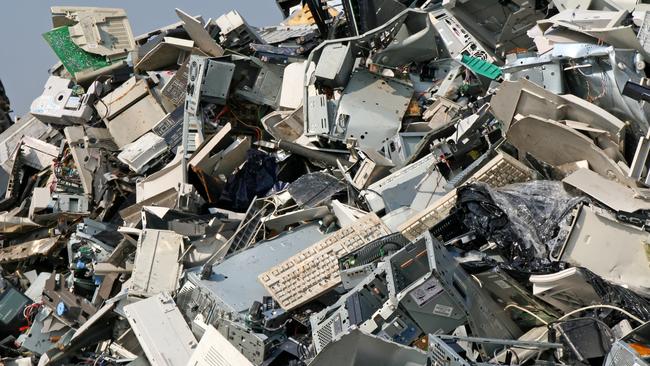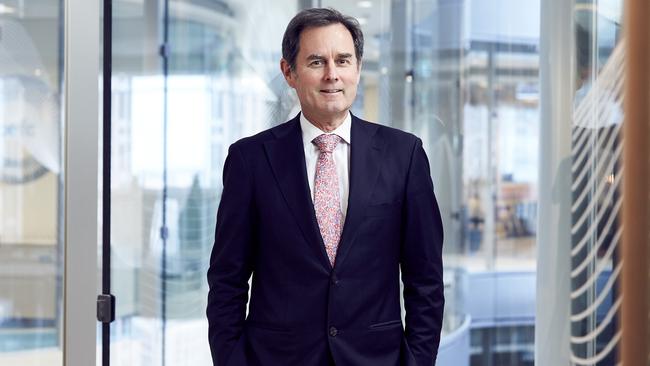Clean Energy Finance Corporation puts aside $7.5m to boost e-waste recycling
Millions of dollars will be spent in Australia to recycle old phones, computers, cables, printers and batteries.

Millions of dollars will be spent in Australia to recycle old phones, computers, cables, printers and batteries.
Australia’s Clean Energy Finance Corporation says it is setting aside $7.5m to help tackle Australia’s mounting e-waste problem and to reduce the associated emissions.
Throwing out your old phones and computers may not seem to amount to much, in terms of overall waste. But it adds up to hundreds of thousands of tonnes annually.
The Australian Bureau of Statistics found that Australia generated 539,000 tonnes of e-waste in 2018-19 alone, and it’s growing quickly.
Emissions associated with e-products entering the Australian market are forecast to increase by 13 per cent by 2030, to more than 10 million tonnes of the equivalent of CO2.
Global e-waste volumes are expected to reach 74 million tonnes per year by 2030, almost doubling in 16 years. About 40 per cent is household waste.
The corporation said it would commit the $7.5m funding to e-waste recycler Scipher Technologies in its Series B funding round. The sum is being matched by a $7.5m investment from the Australian Business Growth Fund (ABGF).
The corporation’s investment, made on behalf of the federal government, will allow Scipher to increase its e-waste processing capacity using new and upgraded recycling infrastructure. Scipher plans to extend its recycling capacity to include mobile phones, lighting equipment, large household appliances and solar panels.

As part of the investment, Scipher is acquiring Total Green Recycling, a Perth-based family business that has become WA’s leading e-waste recycler in just 14 years, processing more than 3000 tonnes of e-waste annually.
Clean Energy Finance Corporation chief executive Ian Learmonth said society needed to address the end-of-life treatment of our many devices as we inevitably discard them and embrace new technologies.
“Making more efficient use of finite resources is an important part of the transition to net zero emissions by 2050, with the added benefit of backing the growth of new industries and jobs,” Mr Learmonth said.
“In our first e-waste investment, we are pleased to support Scipher in its ambitious plans to modernise the Australian e-waste recycling sector, improve recycling rates and lower emissions.”
Scipher managing director Chris Sayers said his company aimed to be Australia’s leader in the responsible and transparent recycling of e-waste and end-of-life solar panels.
“The investment by the CEFC and ABGF will ensure we continue to focus on innovation, regulatory compliance and exceptional client service, while expanding our national operating footprint to provide positive environmental and social outcomes to all our stakeholders and partners.”
ABGF co-head of investments Patrick Verlaine said regulators, businesses and consumers were increasingly focused on the treatment of e-waste.
“We are delighted to be investing alongside such an experienced and industry-leading management team,” he said.
E-waste includes toxic materials such as mercury and lead.
The Clean Energy Finance Corporation, an agency created by the federal government, said 95 per cent of e-waste components could be recycled, reducing the environmental impact of landfill dumping, pollution, contamination as well as sourcing new materials.



To join the conversation, please log in. Don't have an account? Register
Join the conversation, you are commenting as Logout